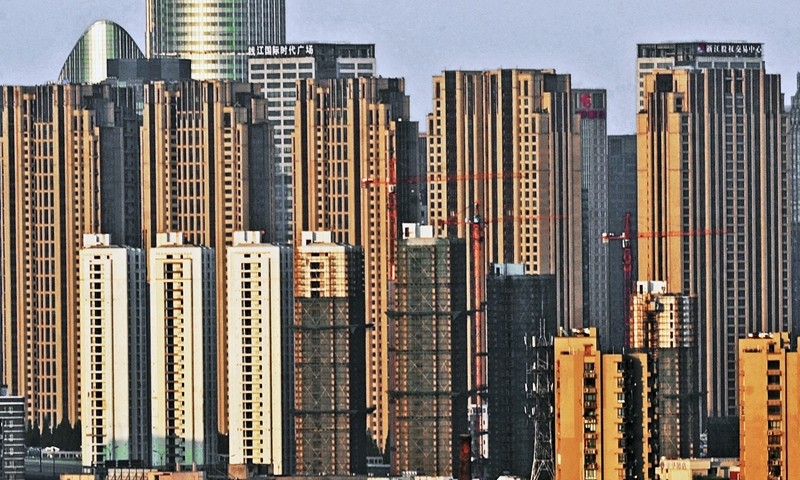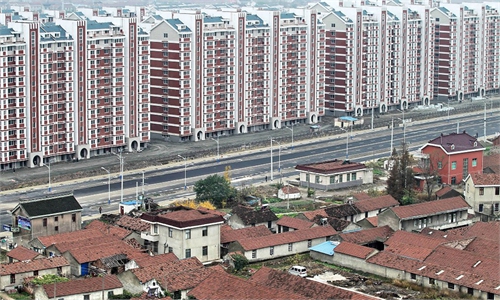
real estate Photo:Xinhua
Chinese listed real estate companies have been actively rolling out refinancing plans over the past month, after the China Securities Regulatory Commission (CSRC) reopened the channel for equity refinancing.
Experts said that this could pave the way for the long-term, stable development of the industry, and an obvious pick-up may emerge in the second quarter of next year.
More than 30 property companies listed in the Chinese mainland or the Hong Kong Special Administrative Region have announced plans to launch equity offerings as of Sunday. The firms include industry giants such as China Vanke Co and China Merchants Shekou Holdings, and local developers such as Lujiazui Properties.
The specific purpose of fundraising varies from company to company, with some planning to use the proceeds to improve their liquidity. Others plan to repay debt or to utilize the money in existing projects to ensure home delivery, and still others plan to use the funds for asset reorganization and acquisition programs.
Unlike some measures aiming to solve these firms' short-term debt crunches, equity refinancing will serve to provide financing for developers' long-term and stable development, Song Ding, a research fellow at the Shenzhen-based China Development Institute, told the Global Times on Monday.
The sector's debt problem will take years to be fully resolved, yet the resumption of equity refinancing is a positive signal for qualified firms to solve their problems and achieve sustainable growth, Song noted.
On November 28, the CSRC lifted restrictions on equity refinancing and mergers and acquisitions for qualified developers, among a series of moves meant to let listed developers use the capital market to ease their funding woes.
In an attempt to invigorate the slumping property sector, China rolled out a flurry of supporting measures this year. According to media reports, Chinese local governments have announced nearly 600 policy optimizations to help reboot the industry.
For example, Dongguan in South China's Guangdong Province announced plans to remove restrictions on the purchase of commercial housing on Monday, which was viewed by many analysts as the start of a new round of measures to promote the recovery of the industry from the perspective of the demand side.
A rising number of cities is also issuing coupons for home purchases, including Zhengzhou in Central China's Henan Province and Changchun in Northeast China's Jilin Province.
An obvious pick-up may be seen in the second quarter of next year as the measures take effect, Song said, noting that it is crucial for developers to shape up high-quality development strategies to realize sustainable growth.
The high debt and high leverage era of property developers is now history. Instead of rapid expansion, these firms need to be committed to high-quality development, Song noted.
China has vowed to accelerate the establishment of a housing system with multiple types of supply and multi-channel guarantees for both the rental and commercial housing sectors. There is huge potential in the rental market and government-subsidized housing market, analysts said.
In the first 11 months of the year, investment in real estate development nationwide totaled 12.39 trillion yuan ($1.78 trillion), down 9.8 percent year-on-year, data from the National Bureau of Statistics showed.


